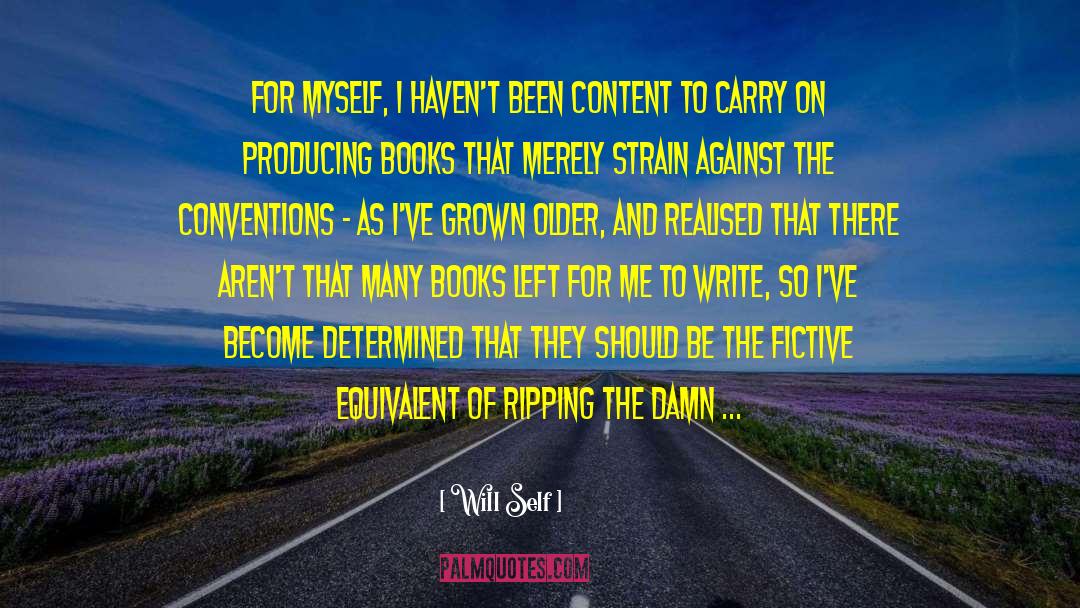Quotes About Fictive
Enjoy collection of 26 Fictive quotes. Download and share images of famous quotes about Fictive. Righ click to see and save pictures of Fictive quotes that you can use as your wallpaper for free.
What Kant took to be the necessary schemata of reality,' says a modern Freudian, 'are really only the necessary schemata of repression.' And an experimental psychologist adds that 'a sense of time can only exist where there is submission to reality.' To see everything as out of mere succession is to behave like a man drugged or insane. Literature and history, as we know them, are not like that; they must submit, be repressed. It is characteristic of the stage we are now at, I think, that the question of how far this submission ought to go--or, to put it the other way, how far one may cultivate fictional patterns or paradigms--is one which is debated, under various forms, by existentialist philosophers, by novelists and anti-novelists, by all who condemn the myths of historiography. It is a debate of fundamental interest, I think, and I shall discuss it in my fifth talk.
Certainly, it seems, there must, even when we have achieved a modern degree of clerical scepticism, be some submission to the fictive patterns. For one thing, a systematic submission of this kind is almost another way of describing what we call 'form.' 'An inter-connexion of parts all mutually implied'; a duration (rather than a space) organizing the moment in terms of the end, giving meaning to the interval between tick and tock because we humanly do not want it to be an indeterminate interval between the tick of birth and the tock of death. That is a way of speaking in temporal terms of literary f ~ Frank Kermode
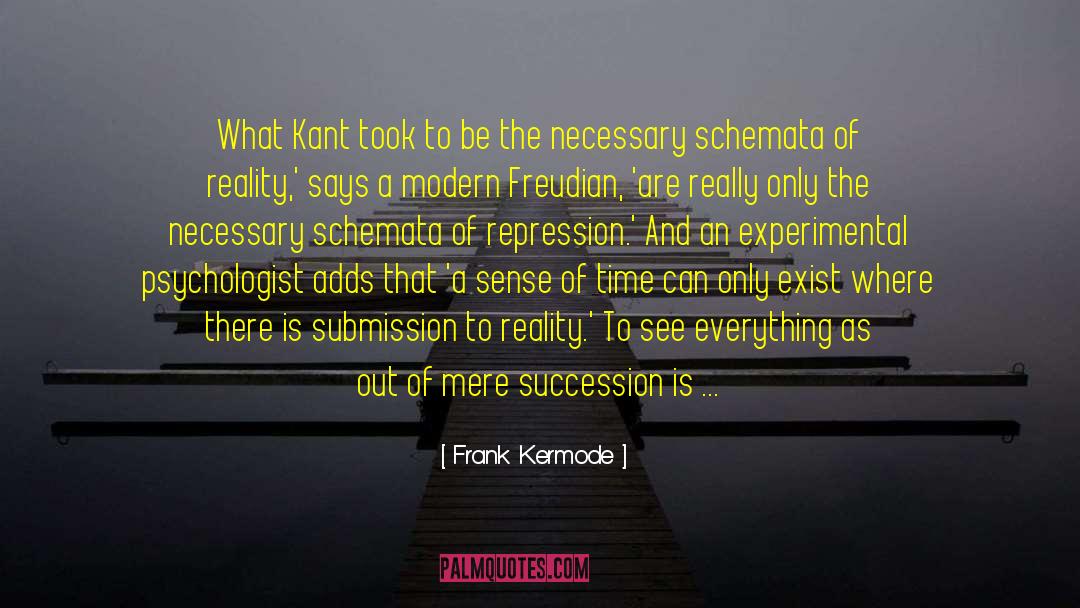
There's something essentially fictive about a photograph. That doesn't mean that if you understand that, and you understand how the world is transformed by the camera, that you can't use the limitations or the transformation to have an observation that is a very subtle perception of the world. ~ Stephen Shore
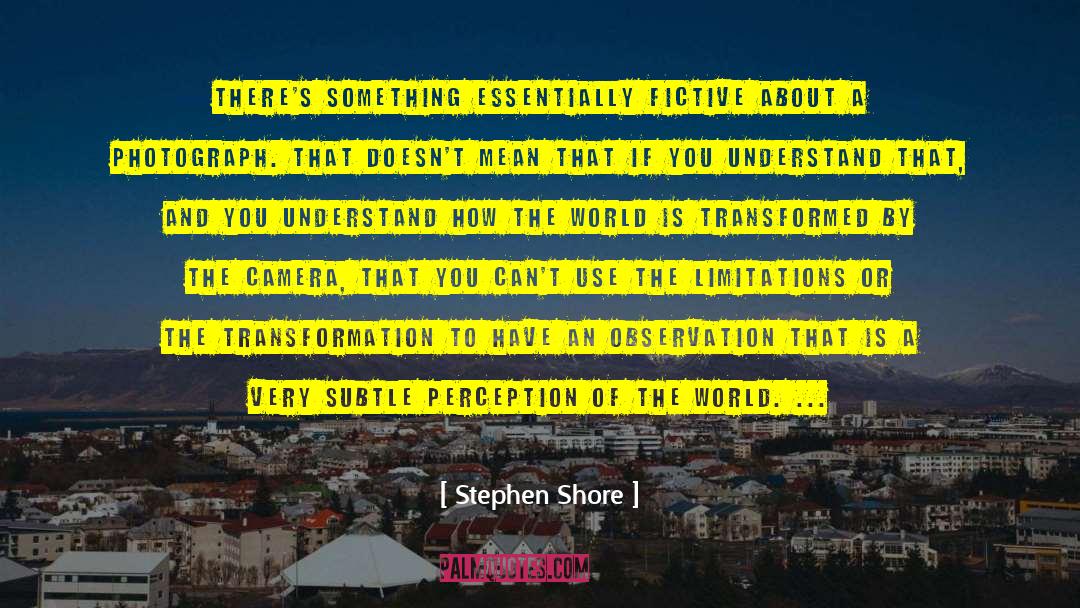
Tulse Luper, who without too many confessions, in a sense, is a fictive version of me. I have to say he has far more exciting adventures, and certainly a lot of them sexual, than ever I've experienced. But in a sense, what you do with an alter ego, you give them all sorts of permissions and licences which you know you'll never be able to embrace in your real life. ~ Peter Greenaway
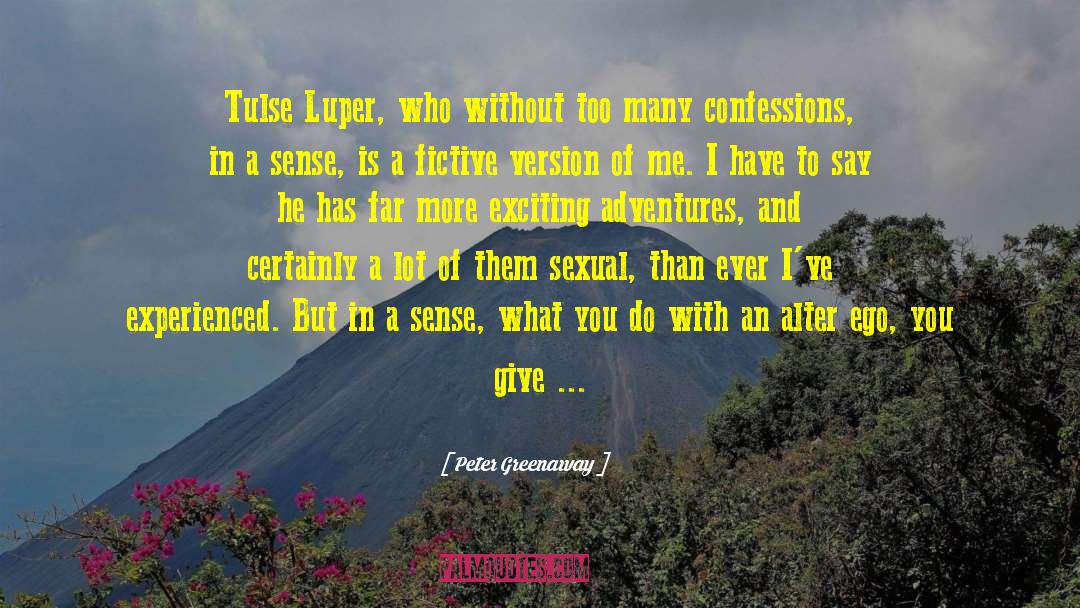
A Word Of Thanks
To these I know a debt past telling:
My several muses, harsh and kind;
My folks, who stood my sulks and yelling,
And (in the long run) did not mind;
Dead legislators, whose orations
I've filched to mix my own potations;
Indeed, all those whose brains I've pressed,
Unmerciful, because obsessed;
My own dumb soul, which on a pittance
Survived to weave this fictive spell;
And, gentle reader, you as well,
The fountainhead of all remittance.
Buy me before good sense insists
You'll strain your purse and sprain your wrists. ~ Vikram Seth
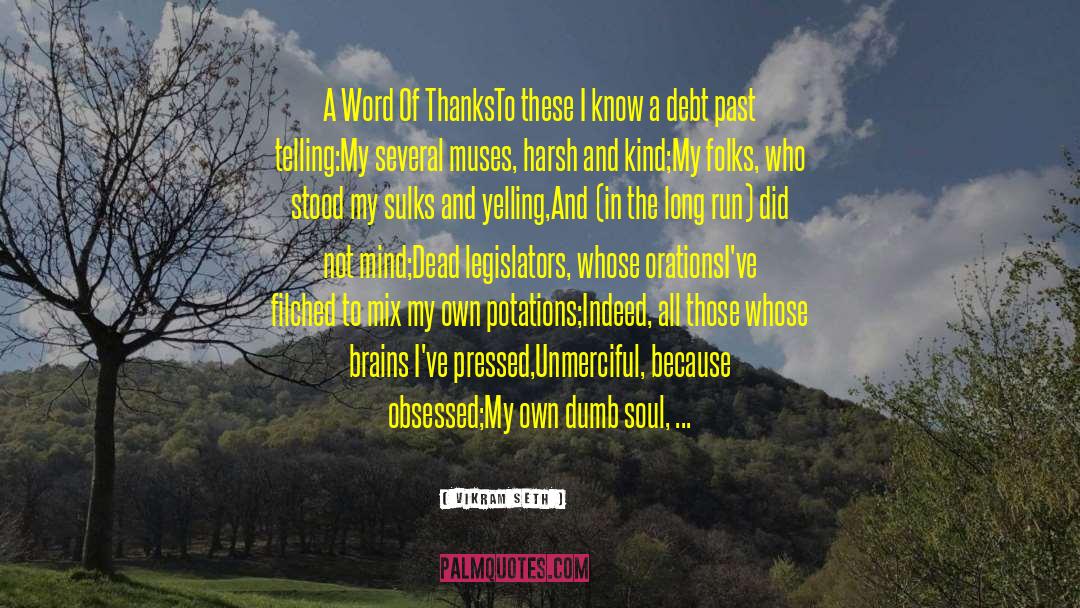
Trust in the fictive process, in the occult interweaving of text and event must be unwavering and absolute. This is the magic place, the mad place at the spark gap between word and world. ~ Alan Moore
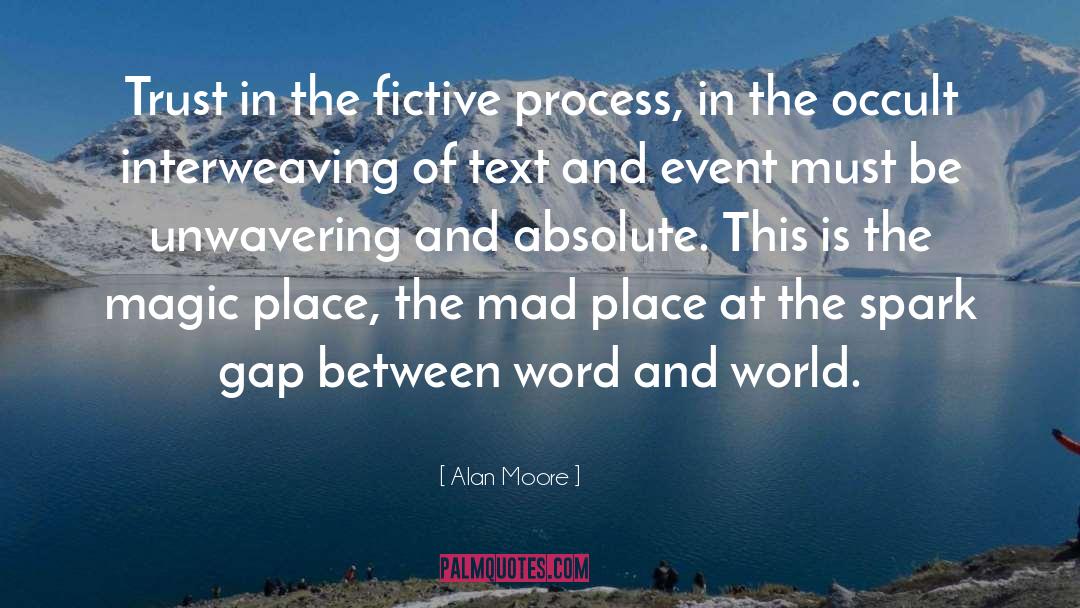
Early in the novel that Tereza clutched under her arm when she went to visit Tomas, Anna meets Vronsky in curious circumstances: they are at the railway station when someone is run over by a train. At the end of the novel, Anna throws herself under a train. This symmetrical composition - the same motif appears at the beginning and at the end - may seem quite "novelistic" to you, and I am willing to agree, but only on condition that you refrain from reading such notions as "fictive," "fabricated," and "untrue to life" into the word "novelistic." Because human lives are composed in precisely such a fashion.
They are composed like music. Guided by his sense of beauty, an individual transforms a fortuitous occurrence (Beethoven's music, death under a train) into a motif, which then assumes a permanent place in the composition of the individual's life. Anna could have chosen another way to take her life. But the motif of death and the railway station, unforgettably bound to the birth of love, enticed her in her hour of despair with its dark beauty. Without realizing it, the individual composes his life according to the laws of beauty even in times of greatest distress.
It is wrong, then, to chide the novel for being fascinated by mysterious coincidences (like the meeting of Anna, Vronsky, the railway station, and death or the meeting of Beethoven, Tomas, Tereza, and the cognac), but it is right to chide man for being blind to such coincidences in his daily li ~ Milan Kundera

I realized early on that artifice attracted me to an image more than any other quality - I mean artifice in the sense of staging and heightened color and exaggerated lighting, not a surreal or fictive moment ... I think the lighting and feeling of Cinemascope, the movies I saw as a kid, always stayed with me as a kind of glorious vision of reality. ~ Laurie Simmons
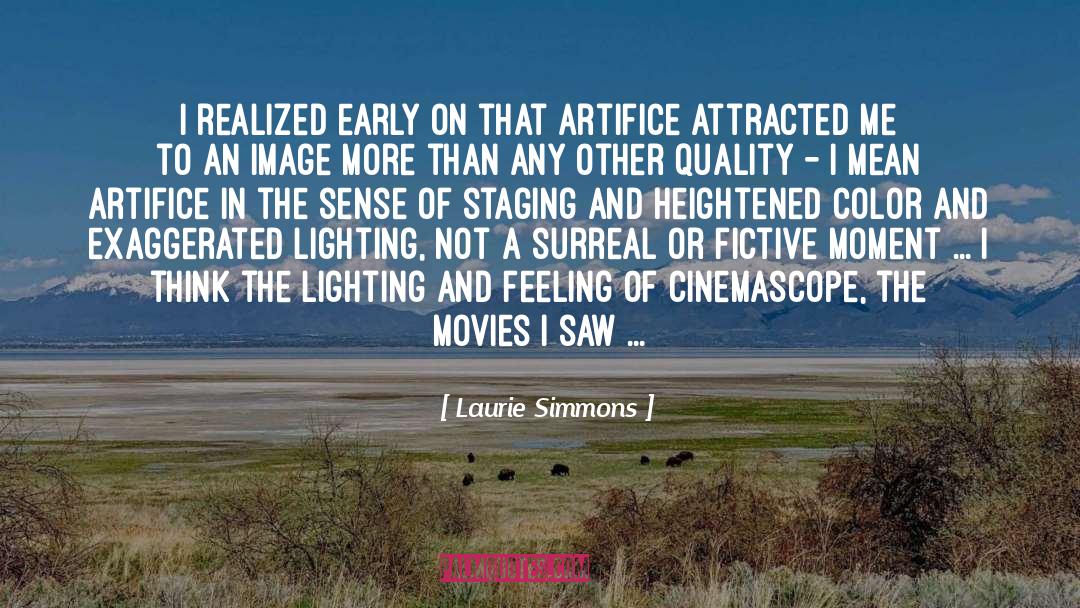
Above all, in comedy, and again and again since classical times, passages can be found in which the level of representation is interrupted by references to the spectators or to the fictive nature of the play. ~ Paul Watzlawick
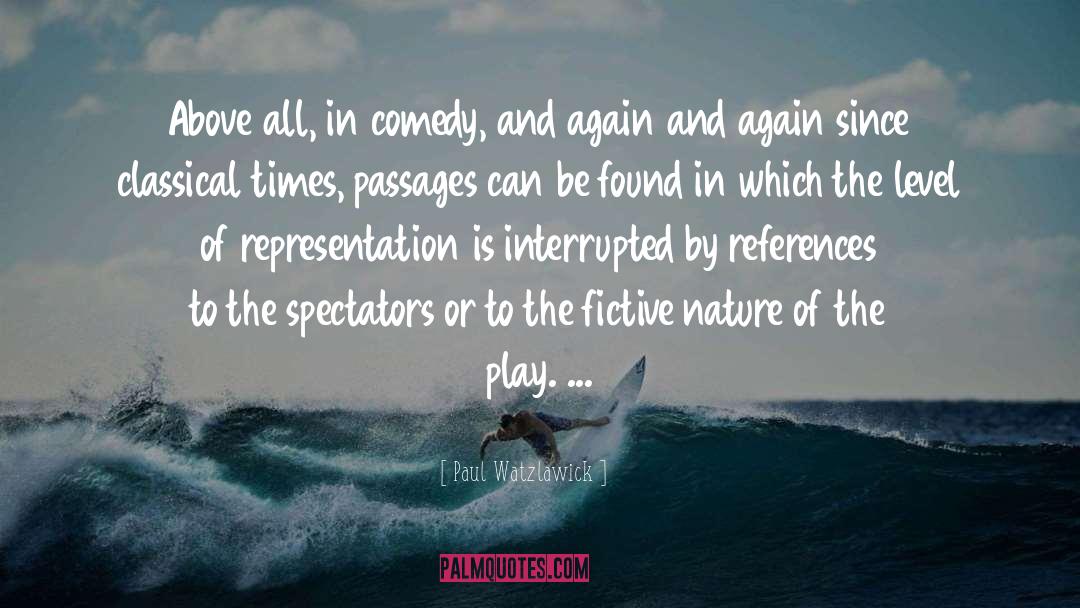
70,000 The Cognitive Revolution. Emergence of fictive language. Beginning of history. Sapiens spread out of Africa. ~ Yuval Noah Harari

Novels begin and end with, consist of, and indeed in one sense are nothing but voices. So reading is learning to listen sensitively, and to tune in accurately, to varying frequencies and a developing programme.
From the opening words a narrative voice begins to create
its own characteristic personality and sensibility, whether it belongs to an 'author' or a 'character'. At the same time a reader is being created, persuaded to become the particular kind of reader the book requires. A relationship develops, which becomes the essential basis of the experience. In the modulation of the fictive voice,
finally, through the creation of 'author' and 'reader* and their relationship, there is a definition of the nature and status of the experience, which will always imply a particular idea of ordering the world.
So much is perhaps familiar enough, and a useful rhetoric of Voice' has developed. Yet I notice in my students and myself, when its vocabulary is in play, a tendency to become rather too abstract or technical, and above all too spatial and static. Perhaps we need to remind ourselves what it can be like to listen to close friends,
talking animatedly and seriously in everyday experience, in order to make sure that a vocabulary which often points only to broad strategies does not tempt us to underplay the extraordinary resourcefulness,
variety and fluctuation of the novelist's voice. ~ Ian Gregor
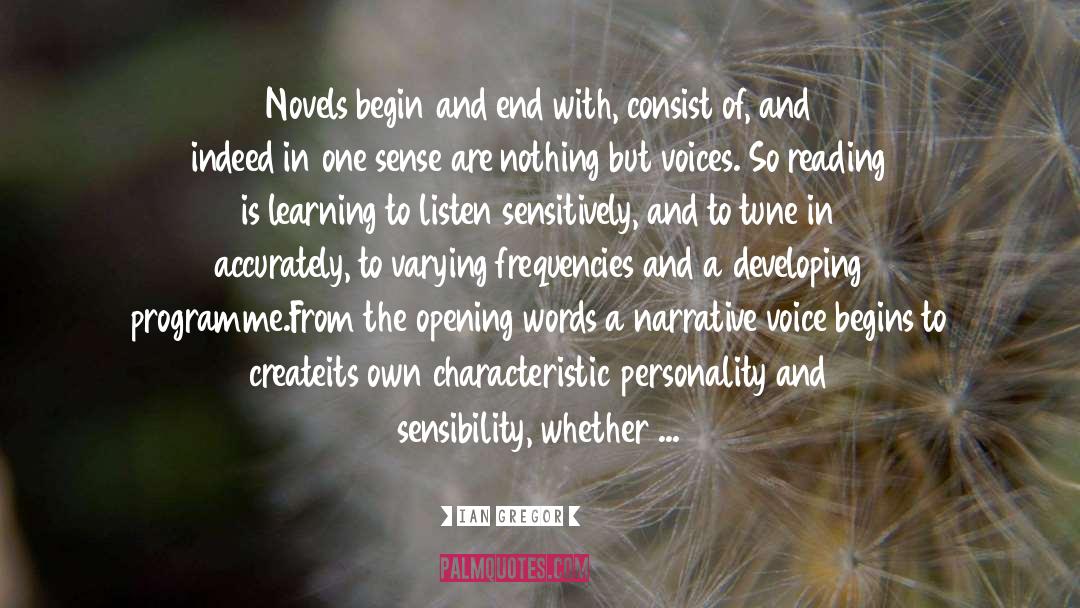
It's a matter of resisting what something made you feel before. And resisting that as a consumer is not easy. I know it isn't for me, and not just when I consume pop culture. When I go into a book and it feels too familiar, I don't have the energy to do it. My whole reason for reading it is to be in a fictive space that is unfamiliar to me. ~ Lucy Corin
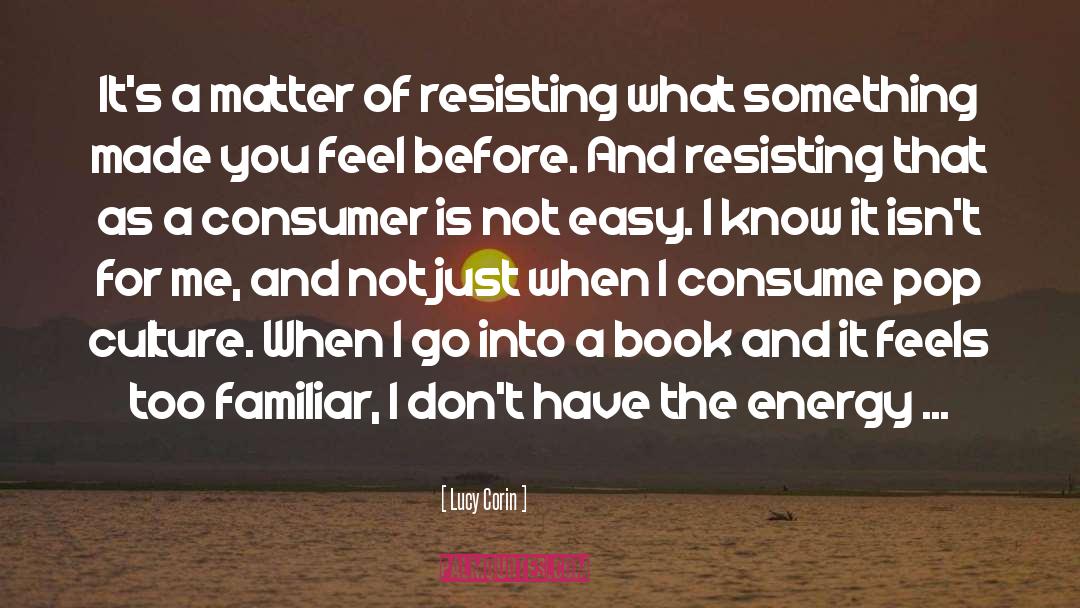
For Temujin, such chosen forms of fictive kinship were already proving more useful than the ties of biological kinship. ~ Jack Weatherford

Far from being opposed to the truth, fiction is only its by-product. ~ Paul Veyne
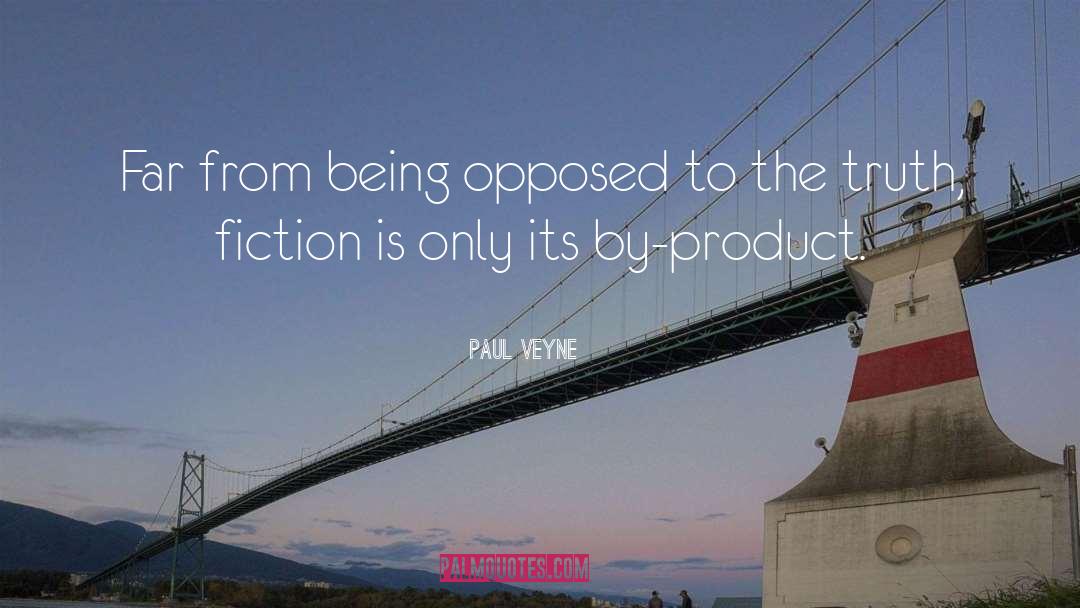
Here's a secret: fictive text doesn't necessarily flow easily. Most of the time it's more like cutting a highway through a mountain. You just have to keep working with your pick, chipping away at the rock, making slow progress. ~ Piers Anthony

This symmetrical composition- the same motif appears at the beginning and at the end- may seem quite 'novelistic' to you, and I am willing to agree, but only on condition that you refrain from reading such notions as 'fictive,' 'fabricated,' and 'untrue to life' into the word 'novelistic.' Because human lives are composed in precisely such a fashion. They are composed like music. Guided by his sense of beauty, an individual transforms a fortuitous occurrence (Beethoven's music, death under a train), into a motif, which then assumes a permanent place in the composition of the individual's life ... Without realizing it, the individual composes his life according to the laws of beauty even in times of greatest distress ... The brain appears to possess a special area which we might call poetic memory and which records everything that charms or touches us, that makes our lives beautiful. ~ Milan Kundera
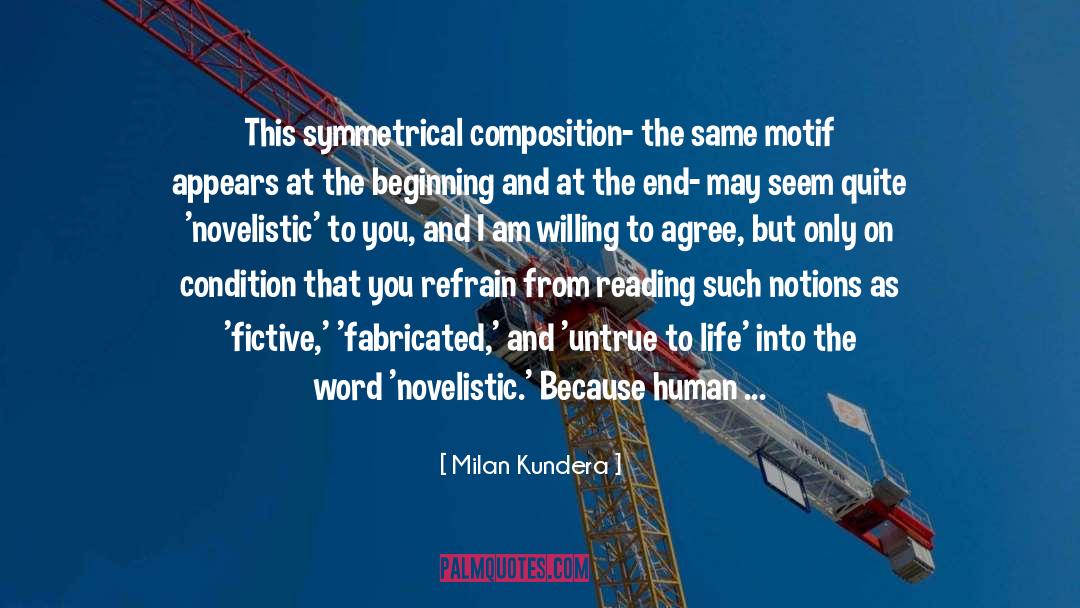
Novels, says Sartre, are not life, but they owe our power upon us, as upon himself as an infant, to the fact that they are somehow like life. In life, he once remarked, 'all ways are barred and nevertheless we must act. So we try to change the world; that is, to live as if the relations between things and their potentialities were governed not by deterministic processes but by magic.' The as if of the novel consists in a similar negation of determinism, the establishment of an accepted freedom by magic. We make up aventures, invent and ascribe the significance of temporal concords to those 'privileged moments' to which we alone award their prestige, make our own human clocks tick in a clockless world. And we take a man who is by definition de trop, and create a context in which he isn't.
The novel is a lie only as our quotidian inventions are lies. The power which goes to its making--the imagination --is a function of man's inescapable freedom. This freedom, in Mary Warnock's words, 'expresses itself in his ability to see things which are not.' It is by his fiction that we know he is free. It is not surprising that Sartre as ontologist, having to describe many kinds of fictive behaviour, invents stories to do so, thus moving into a middle ground between life and novel. .... ~ Frank Kermode
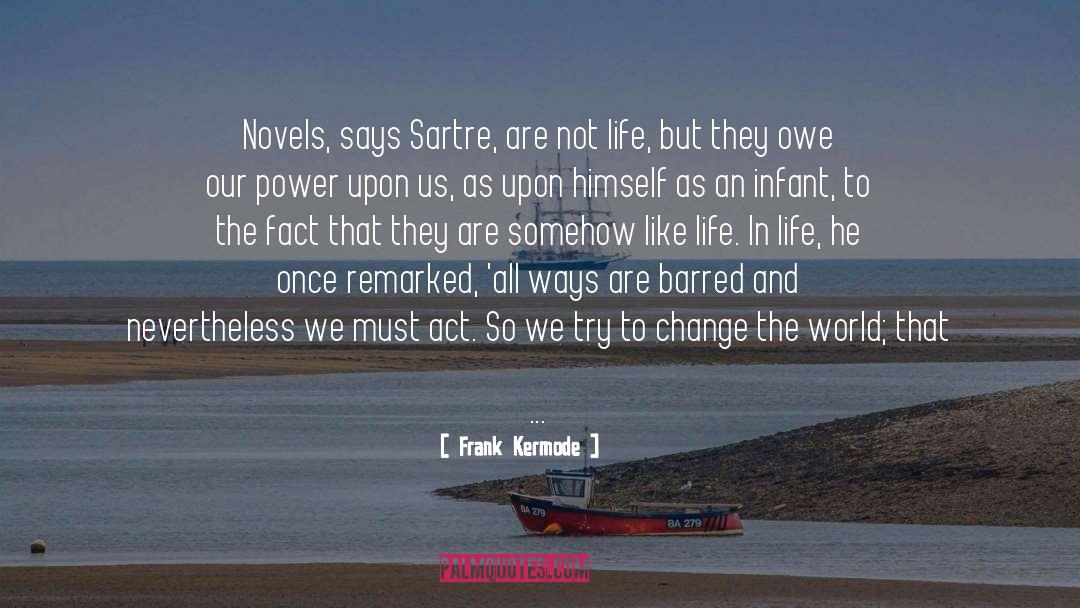
The satyr, as the Dionysiac chorist, dwells in a reality sanctioned by myth and ritual. That tragedy should begin with him, that the Dionysiac wisdom of tragedy should speak through him, is as puzzling a phenomenon as, more generally, the origin of tragedy from the chorus. Perhaps we can gain a starting point for this inquiry by claiming that the satyr, that fictive nature sprite, stands to cultured man in the same relation as Dionysian music does to civilization. Richard Wagner has said of the latter that it is absorbed by music as lamplight by daylight. In the same manner, I believe, the cultured Greek felt himself absorbed into the satyr chorus, and in the next development of Greek tragedy state and society, in fact everything that separates man from man, gave way before an overwhelming sense of unity that led back into the heart of nature. This metaphysical solace (which, I wish to say at once, all true tragedy sends us away) that, despite every phenomenal change, life is at bottom indestructibly joyful and powerful, was expressed most concretely in the chorus of satyrs, nature beings who dwell behind all civilization and preserve their identity through every change of generations and historical movement.
With this chorus the profound Greek, so uniquely susceptible to the subtlest and deepest suffering, who had penetrated the destructive agencies of both nature and history, solaced himself. Though he had been in danger of craving a Buddhistic denial of the will ~ Friedrich Nietzsche
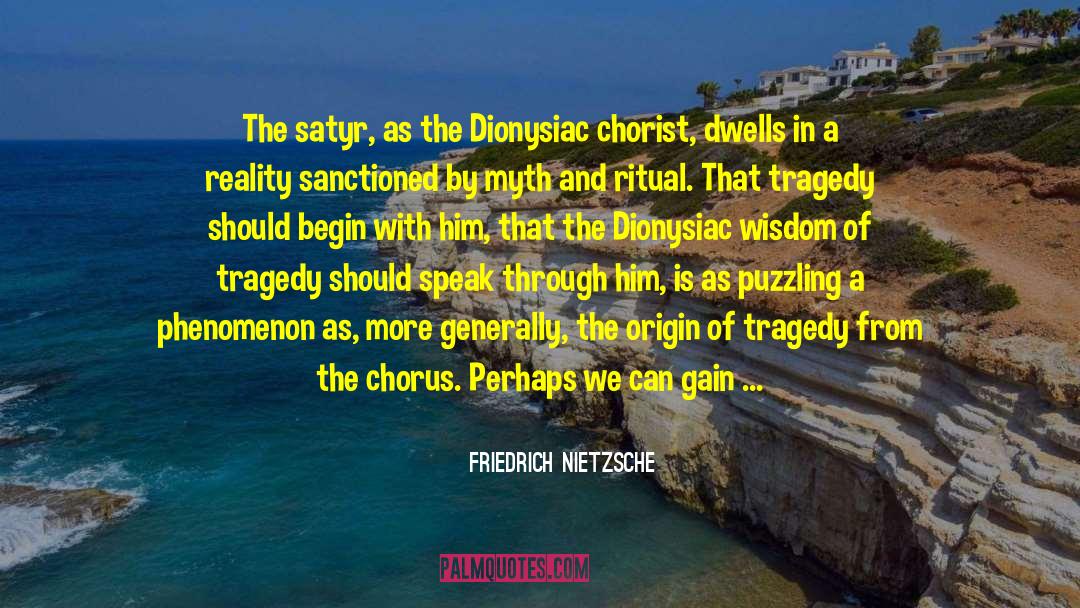
Fiction is a web of lies that attempts to entangle the truth. And autobiography may well be the reverse: data tricked up and rearranged to invent a fictive self. ~ Nicholas Delbanco
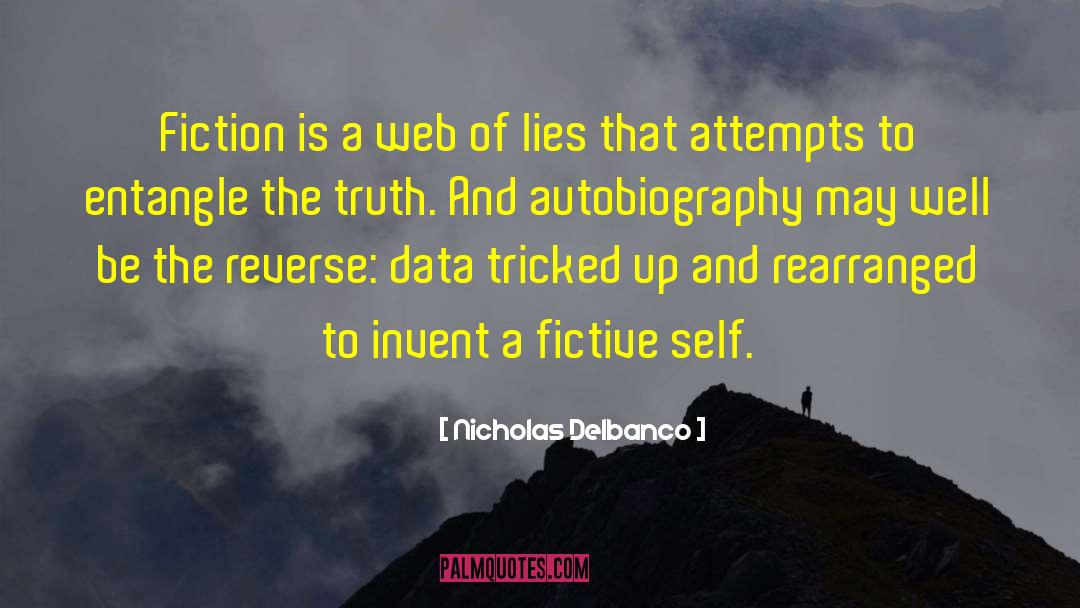
here is one other element of the apocalyptic tradition to be considered, namely transition. I said a minute ago that one of the assumptions prevalent in sophisticated apocalyptism was what Yeats called 'antithetical multiform influx'--the forms assumed by the inrushing gyre as the old one reaches its term. The dialectic of Yeats's gyres is simple enough in essence; they are a figure for the co-existence of the past and future at the time of transition. The old narrows to its apex, the new broadens towards its base, and the old and new interpenetrate. Where apex and base come together you have an age of very rapid transition. Actually, on Yeats's view of the historical cycle, there were transient moments of perfection, or what he called Unity of Being; but there was no way of making these permanent, and his philosophy of history is throughout transitional. In this he is not, of course, original; but his emphasis on the traditional character of our own pre-apocalyptic moment, in contrast with those exquisite points of time when life was like the water brimming beautifully but unstably over the rim of a fountain, seems, for all the privacy of the expression, characteristically modern.
It is commonplace that our times do in fact suffer a more rapid rate of change technologically, and consequently in the increase of social mobility, than any before us. There is nothing fictive about that, and its implications are clear in our own day-to-day lives. What is interesting, t ~ Frank Kermode
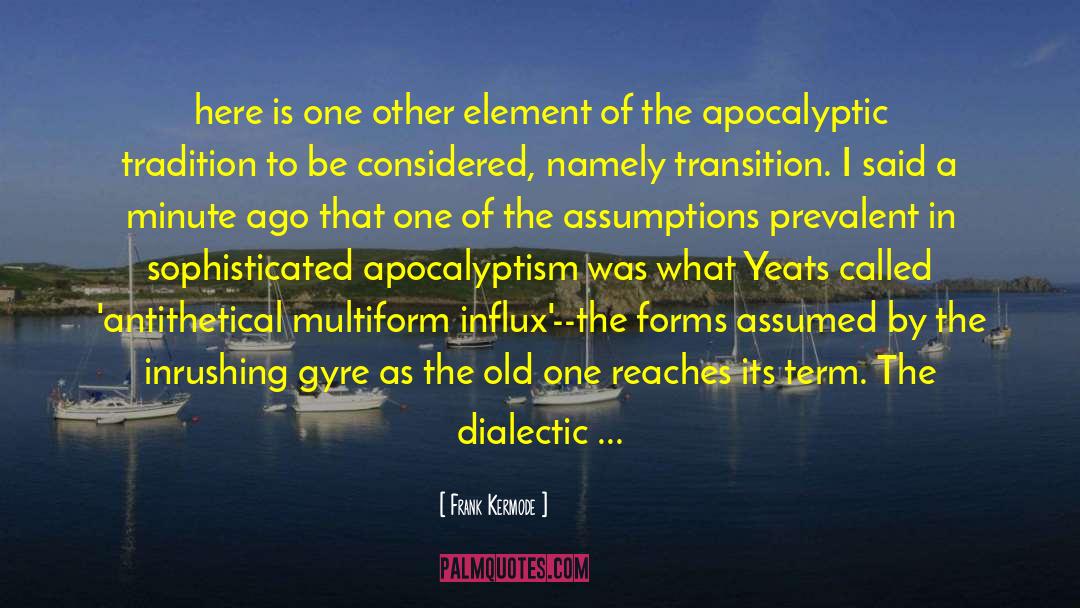
Although to penetrate into the intimate mysteries of nature and thence to learn the true causes of phenomena is not allowed to us, nevertheless it can happen that a certain fictive hypothesis may suffice for explaining many phenomena. ~ Leonhard Euler
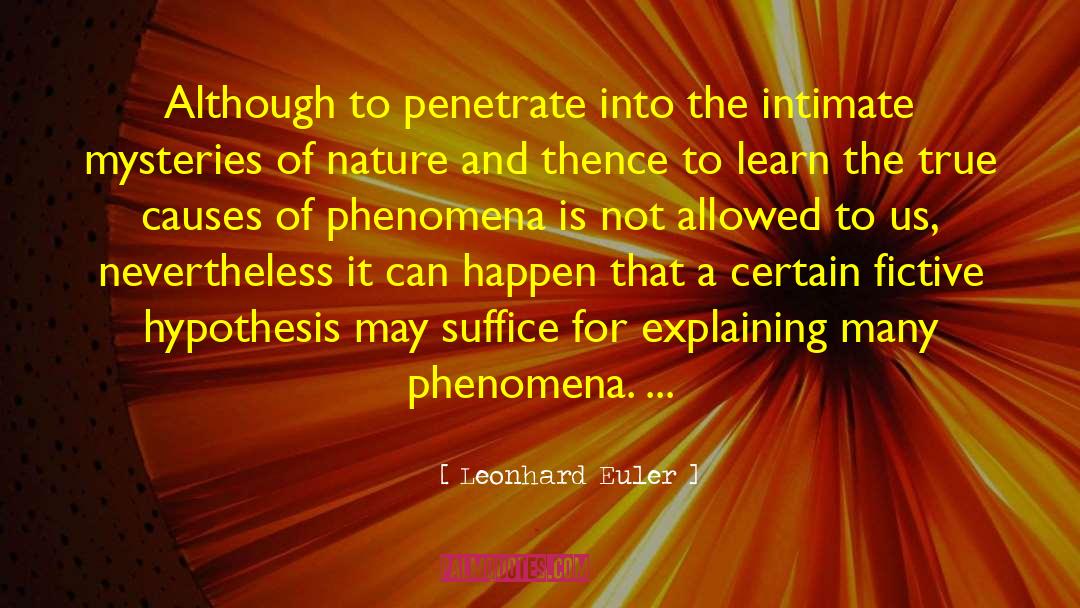
At some very low level, we all share certain fictions about time, and they testify to the continuity of what is called human nature, however conscious some, as against others, may become of the fictive quality of these fictions.
It seems to follow that we shall learn more concerning the sense-making paradigms, relative to time, from experimental psychologists than from scientists or philosophers, and more from St. Augustine than from Kant or Einstein because St. Augustine studies time as the soul's necessary self-extension before and after the critical moment upon which he reflects. We shall learn more from Piaget, from studies of such disorders as déjà vu, eidetic imagery, the Korsakoff syndrome, than from the learned investigators of time's arrow, or, on the other hand, from the mythic archetypes.
Let us take a very simple example, the ticking of a clock. We ask what it says: and we agree that it says tick-tock. By this fiction we humanize it, make it talk our language. Of course, it is we who provide the fictional difference between the two sounds; tick is our word for a physical beginning, tock our word for an end. We say they differ. What enables them to be different is a special kind of middle. We can perceive a duration only when it is organized. It can be shown by experiment that subjects who listen to rhythmic structures such as tick-tock, repeated identically, 'can reproduce the intervals within the structure accurately, but they cannot grasp s ~ Frank Kermode
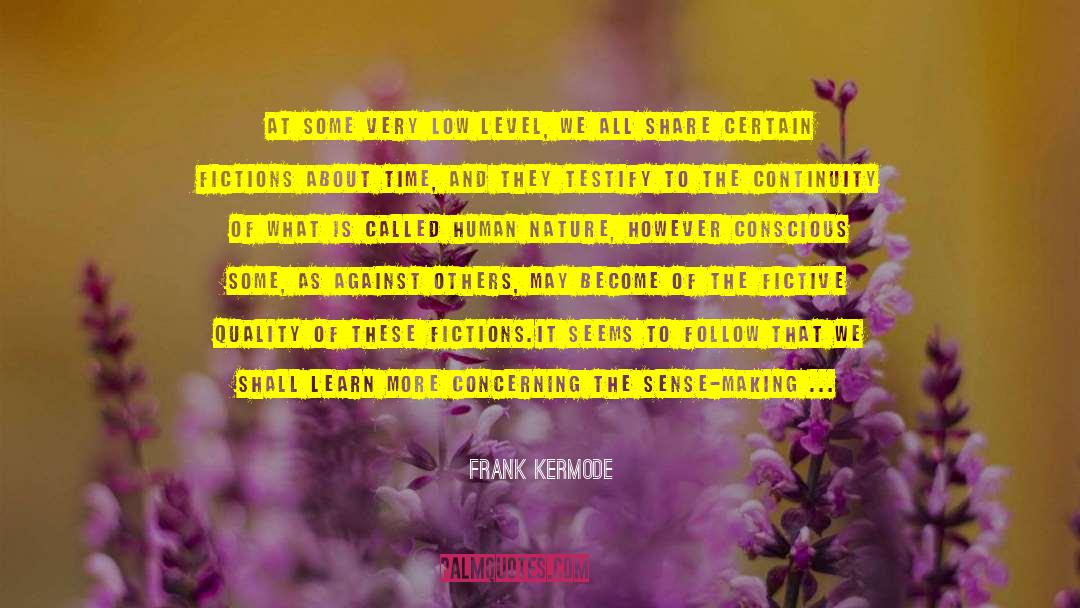
I grew up with that completely fictive idea of motherhood, where the mother never strayed from the kitchen. All the women in my books are very afraid that if they do anything with their minds they won't be complete women. I don't think my daughters' generation has that feeling. ~ A.S. Byatt
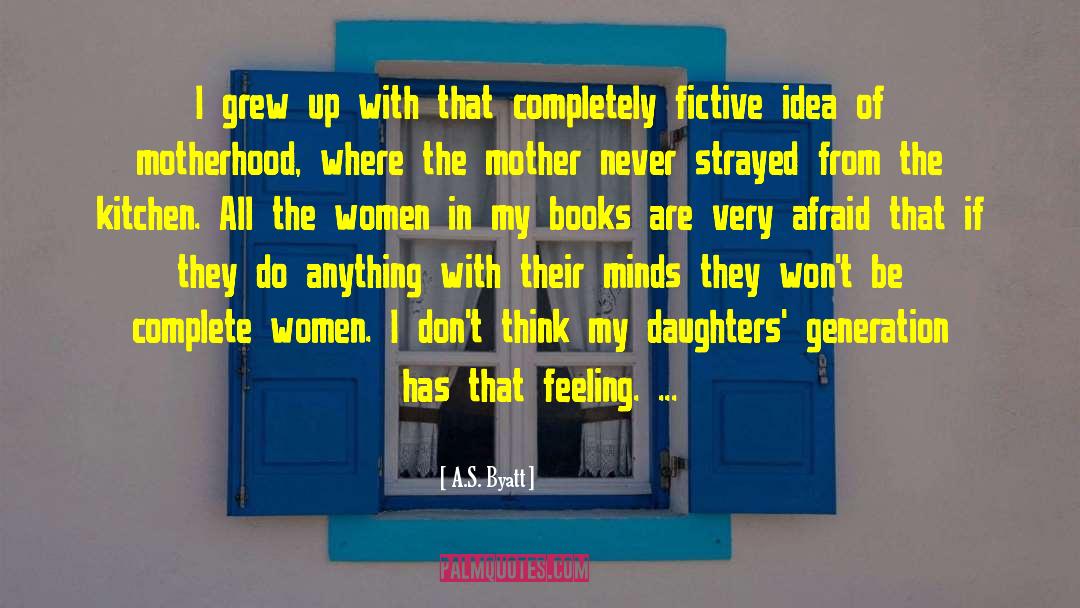
I should like to write about what happens when fictive people encounter and are embellished by real people. ~ Jean Giono

Aside from that reservation, a fictive tale even has the advantage of manifesting symbolic necessity more purely to the extent that we may believe its conception arbitrary. ~ Jacques Lacan
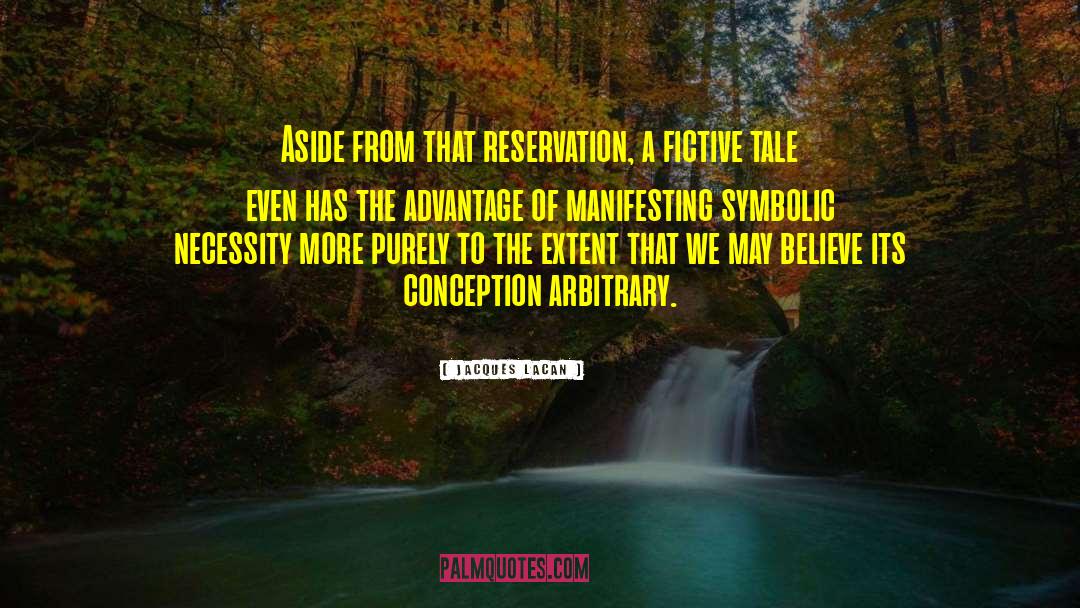
This was the curse of the voracious reader, she realized. Real life never quite measured up to the heightened and precise contours of her literary worlds. A real war was never as true as a fictive one. ~ Reif Larsen
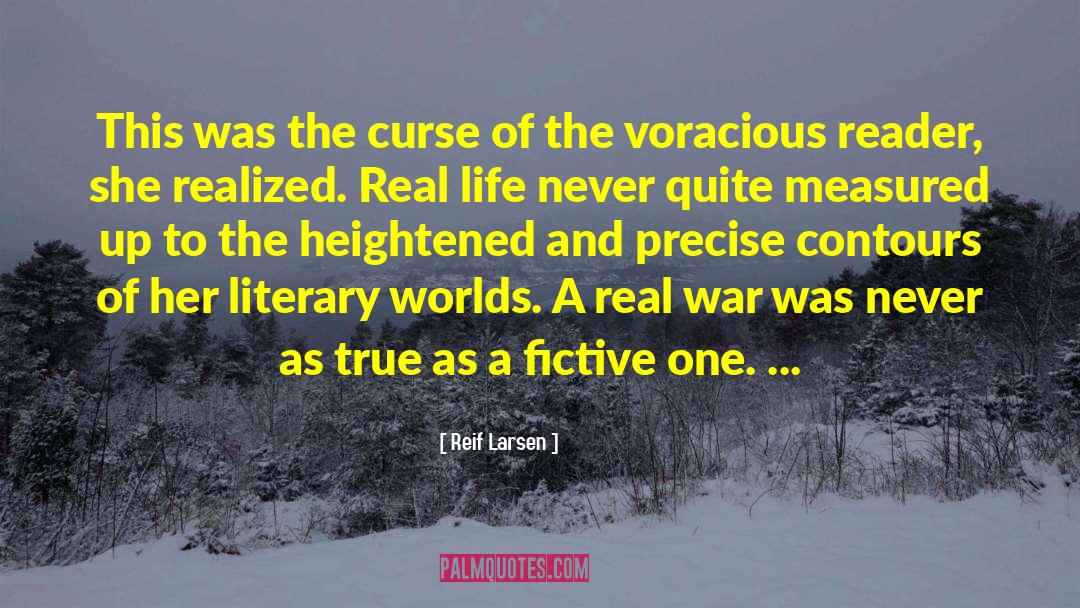
For myself, I haven't been content to carry on producing books that merely strain against the conventions - as I've grown older, and realised that there aren't that many books left for me to write, so I've become determined that they should be the fictive equivalent of ripping the damn corset off altogether and chucking it on the fire. ~ Will Self
